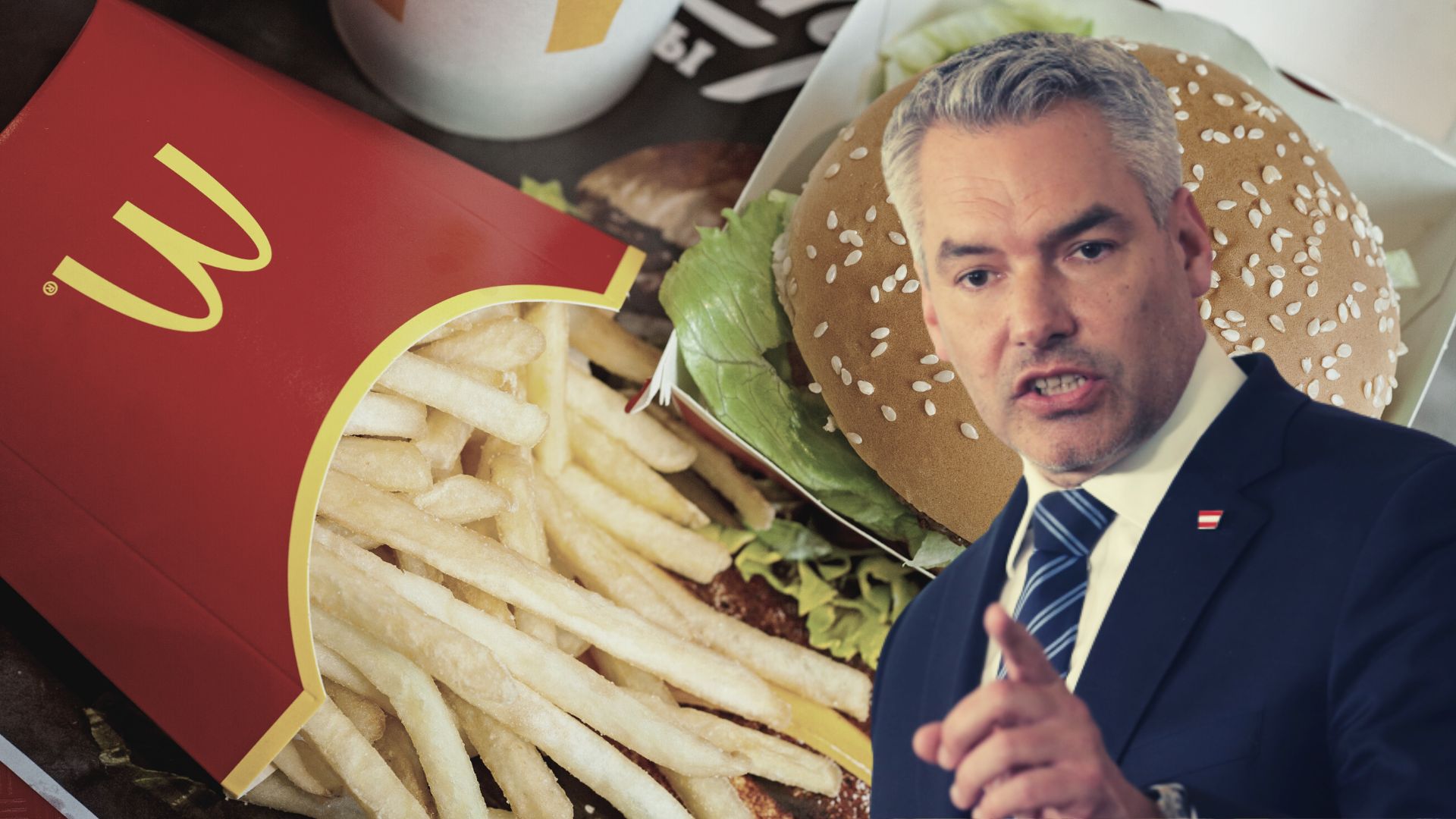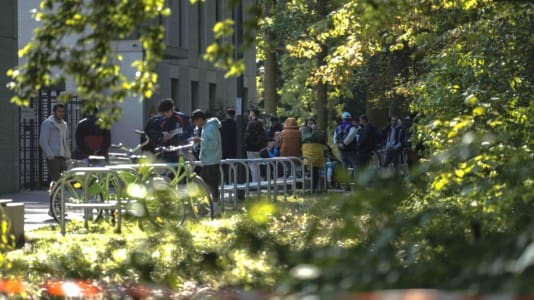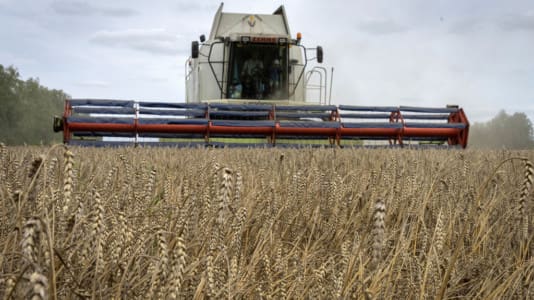Austrian Chancellor Karl Nehammer has come under heavy criticism after a video emerged showing him saying that low-income parents should feed their children McDonald’s burgers.
In the video, the center-right politician, Nehammer, of the Austria People’s Party (ÖVP), talks about poverty and then complains about how the press covers child hunger.
“So, what does it mean that a child in Austria doesn’t get a hot meal? Do you know what the cheapest hot meal in Austria is? It’s not healthy, but cheap: A hamburger at McDonald’s is €1.40 — if I add fries, it’s €3.50. Now, someone is seriously saying that we live in a country where parents cannot afford this food for their children?” he said.
“If I have too little money, I go to work more,” he added in the video, which was filmed at an event near Salzburg.
The right-wing Freedom Party of Austria (FPÖ) leader Herbert Kickl slammed the chancellor’s remarks, stating that the comments made in the “wine cellar” show the “true face of the ÖVP chancellor.”
Other members of the FPÖ took issue with Nehammer’s remarks, pointing out that his party, along with its Green party coalition partners, have unleashed inflation across Austria due to their disastrous sanctions policies directed against Russia.
“The picture of people at risk of poverty, women and single parents that Nehammer again paints in this video is inhumane, condescending, shameful and unworthy of a chancellor’s party,” says the FPÖ’s women and family spokeswoman Rosa Ecker. “With his party colleagues, ÖVP Chancellor Karl Nehammer mocks people at risk of poverty, but especially women, mothers and single parents who fight every day against the inflation caused by the black-green government in order to somehow make ends meet.
“No, Mr. Chancellor, hamburgers and fries are not the classic warm dishes that parents want to serve their children. The way the People’s Party not only thinks about people at risk of poverty, but now speaks openly and loudly about them, is simply shabby. Nehammer and his elite party colleagues obviously live in a parallel world and no longer know what worries and fears they bring to the families and women in our country,” Ecker stated.
A spokesman for McDonald’s Austria told Brussels news agency Politico that although prices vary, it is possible to eat as cheaply as Nehammer suggested.
“From a common-sense point of view, this is obviously the worst health advice we can give to anyone, but especially children,” said Dorota Sienkiewicz, EuroHealthNet’s policy director.
“No one in Austria has to starve or freeze to death in winter, we are born in a lucky place in that respect. But anyone who says that no one in Austria is starving or freezing has no idea of the reality,” said Michael Landau, president of Caritas Austria, which works to improve the living conditions of the poor, on X.
Nehammer posted a video on X on Thursday in which he defended his government’s assistance to what he called low-income families, but made no apologies.
“I stand for rewarding achievement, and I stand for the duty of parents to care for their children,” he said.
The ratio of people “at risk of poverty” in Austria stood at 19.2 percent last year according to Eurostat, just below the euro area average of 20.1 percent.






